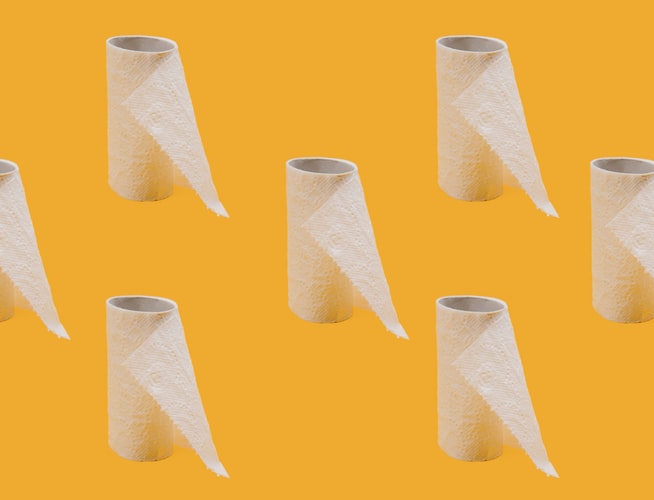In recent weeks, the world has seen how a global pandemic has broken the regular order of life. Various studies and analyzes have emerged in parallel, trying to understand this phenomenon and its immediate effects. From the first days, Slavoj Žižek gave his opinion in this regard and stood out as one of the voices to consider in this debate that concerns life, death, the role of government, individual freedom, capitalism, and the culture of panic.
On this occasion, Žižek once again offers his analysis full of analogies and contemporary cultural references, from Quentin Tarantino to H.G. Wells, from Hegel to Marx. All this to once again put into crisis modern capitalism.
Slavoj Žižek is a well-known author influenced by Hegel, Marxism, and Psychoanalysis, with a long philosophical and intellectual trajectory. He is world-renowned for his controversial opinions that touch and criticize both the right and “the fake academics of the left” (See The Courage of Hopelessness: Chronicles of a Year of Acting Dangerously, 2017). His universal recognition began with the text The Sublime Object of Ideology (1989), in which he detached from the traditional Marxist interpretation of ideology to introduce a new definition that includes elements of psychoanalysis.
Some of his books are Welcome to the Desert of the Real (2002), Violence (2008), Less Than Nothing: Hegel and the Shadow of Dialectical Materialism (2012), and The Courage of Hopelessness: Chronicles of a Year of Acting Dangerously (2017).
Book Details: Žižek, Slavoj. (2020). Pandemic! Covid-19 Shakes the World. OR Books. 120 pages. ISBN 978-1-68219-301-3. E-book 978-1-68219-246-7
Pre-order the book here: Pandemic
Below, we offer our readers a fragment of the book: Pandemic! Covid-19 Shakes the World.
Calm down and panic!
Our media endlessly repeat the formula “No panic!” and then we get all the data that cannot but trigger panic. The situation resembles one I remember from my youth in a Communist country when government officials regularly assured the public there was no reason to panic. We all took such assurances as a clear sign that they were themselves panicking.
Panic has a logic of its own. The fact that, in the UK, due to the coronavirus panic, even the toilet paper rolls disappeared from the stores reminds me of a weird incident with toilet paper from my youth in Socialist Yugoslavia. All of a sudden, a rumor started to circulate that there not enough toilet paper was available. The authorities promptly issued assurances that there was enough toilet paper for normal consumption, and, surprisingly, this was not only true but people mostly even believed it was true. However, an average consumer reasoned in the following way: I know there is enough toilet paper and the rumor is false, but what if some people take this rumor seriously and, in a panic, start to buy excessive reserves of toilet paper, causing an actual shortage? So I better buy reserves myself. It is not even necessary to believe that some others take the rumor seriously – it is enough to presuppose that some others believe that there are people who take the rumor seriously – the effect is the same, namely the real lack of toilet paper in the stores. Is something similar not going on in the UK and California today?
The strange counterpart of this kind of ongoing excessive fear is the absence of panic when it would have been fully justified. In the last couple of years, after the SARS and Ebola epidemics, we were told again and again that a new much stronger epidemic was just a matter of time, that the question was not IF but WHEN. Although we were convinced of the truth of these dire predictions, we somehow didn’t take them seriously and were reluctant to act and engage in serious preparations – the only place we dealt with them was in apocalyptic movies like Contagion.
What this contrast tells us is that panic is not a proper way to confront a real threat. When we react in panic, we do not take the threat seriously – we, on the contrary, trivialize it. Just think how ridiculous is the notion that having enough toilet paper would matter in the midst of a deadly epidemic. So what would be an appropriate reaction to the coronavirus epidemic? What should we learn and what should we do to confront it seriously?
When I suggested that the coronavirus epidemics may give a new boost of life to Communism, my claim was, as expected, ridiculed. Although it seems that the strong approach to the crisis by the Chinese state has worked – or at least worked much better than what is now occurring in Italy, the old authoritarian logic of Communists in power also clearly demonstrated its limitations. One example was the fear of bringing bad news to those in power (and to the public) that outweighed actual results – this was the reason why those who first reported on a new virus were arrested, and there are reports that a similar phenomenon is occurring now the epidemic is waning.
“The pressure to get China back to work after the coronavirus shutdown is resurrecting an old temptation: doctoring data so it shows senior officials what they want to see. This phenomenon is playing out in Zhejiang province, an industrial hub on the east coast, in the form of electricity usage. At least three cities there have given local factories targets to hit for power consumption because they’re using the data to show a resurgence in production, according to people familiar with the matter. That’s prompted some businesses to run machinery even as their plants remain empty, the people said.” (1)
We can also guess what will follow when those in power catch wind of this cheating: local managers will be accused of sabotage and severely punished, thus reproducing the vicious cycle of distrust. A Chinese Julian Assange is needed to expose to the public the concealment in China’s response to the epidemic. But if this is not the Communism I have in mind, what do I mean by Communism? To understand it, one just has to read the public declarations of WHO. Here is a recent one:
“WHO chief Dr. Tedros Adhanom Ghebreyesus said Thursday that although public health authorities across the globe have the ability to successfully combat the spread of the virus, the organization is concerned that in some countries the level of political commitment does not match the threat level. ‘This is not a drill. This is not the time to give up. This is not a time for excuses. This is a time for pulling out all the stops. Countries have been planning for scenarios like this for decades. Now is the time to act on those plans,’ Tedros said. ‘This epidemic can be pushed back, but only with a collective, coordinated and comprehensive approach that engages the entire machinery of government.’” (2)
One might add that such a comprehensive approach should reach well beyond the machinery of single governments: it should encompass local mobilization of people outside state control as well as strong and efficient international coordination and collaboration. If thousands become hospitalized with breathing problems, a vastly increased number of respiratory machines will be needed, and to get them, the state should directly intervene in the same way as it intervenes in conditions of war when thousands of guns are needed. It should also seek cooperation with other states. As in a military campaign, information should be shared and plans fully coordinated – This is all I mean by the “Communism” needed today, or, as Will Hutton put it: “Now, one form of unregulated, free-market globalization with its propensity for crises and pandemics is certainly dying. But another form that recognizes interdependence and the primacy of evidence-based collective action is being born.” What now still predominates is the stance of “every country for itself”: “there are national bans on exports of key products such as medical supplies, with countries falling back on their own analysis of the crisis amid localized shortages and haphazard, primitive approaches to containment.” (3)
The coronavirus epidemics does not signal just the limit of the market globalization, it also signals the even more fatal limit of nationalist populism which insists on full state sovereignty: it’s over with “America (or whoever) first!” since America can be saved only through global coordination and collaboration. I am not a utopian here, I don’t appeal to an idealized solidarity between people – on the contrary, the present crisis demonstrates clearly how global solidarity and cooperation is in the interest of the survival of all and each of us, how it is the only rational egotist thing to do. And it’s not just coronavirus: China itself suffered a gigantic swine flu months ago, and it is now threatened by the prospect of a locust invasion. And, as Owen Jones has noted , climate crisis is killing many more people around the world than coronavirus, but there is no panic about this.
From a cynical, vitalist standpoint, one could be tempted to see coronavirus as a beneficial infection that allows humanity to get rid of the old, weak and ill, like pulling out the half-rotten weed so that younger, healthier plants can prosper, and thus contributes to global health. The broad Communist approach I am advocating is the only way for us to leave behind such a primitive standpoint.
Signs of curtailing unconditional solidarity are already discernible in the ongoing debates, as in the following note about the role of the “three wise men” if the epidemic takes a more catastrophic turn in the UK: “NHS patients could be denied lifesaving care during a severe coronavirus outbreak in Britain if intensive care units are struggling to cope, senior doctors have warned. Under a so-called ‘three wise men’ protocol, three senior consultants in each hospital would be forced to make decisions on rationing care such as ventilators and beds, in the event hospitals were overwhelmed with patients.” (4) What criteria will the “three wise men” rely on? Sacrifice of the weakest and eldest? And will this situation not open up the space for immense corruption? Do such procedures not indicate that we are getting ready to enact the most brutal logic of the survival of the fittest? So, again, the choice we face is: barbarism or some kind of reinvented Communism.
Notes
- Bloomberg News. ( March 1, 2020). China’s Push to Restart Economy Revives Data Worries. Retrieved from: https://www.bloomberg.com/news/articles/2020-03-01/china-s-push-to-jump-start-economy-revives-worries-of-fake-data
- Berlinger, Joshua. (March 6, 2020). WHO warns governments ‘this is not a drill’ as coronavirus infections near 100,000 worldwide. CNN. Retrieved from: https://edition.cnn.com/2020/03/06/asia/coronavirus-covid-19-update-who-intl-hnk/index.html
- Hutton, Will (March 8, 2020). Coronavirus won’t end globalisation, but change it hugely for the better. The Guardian. Retrieved from: https://www.theguardian.com/commentisfree/2020/mar/08/the-coronavirus-outbreak-shows-us-that-no-one-can-take-on-this-enemy-alone
- Lintern, Shaun. (2020). Coronavirus: Weakest patients could be denied lifesaving care due to lack of funding for NHS, doctors admit. Independent. Retrieved from: https://www.independent.co.uk/news/health/coronavirus-uk-deaths-nhs-intensive-care-flu-wise-men-protocol-a9361916.html


[…] his most recent conversation with Renata Ávila from DiEM25 TV, Žižek talks about the Coronavirus pandemic. Once again he returns to the topics that he had already opened in his two previous texts; issues […]